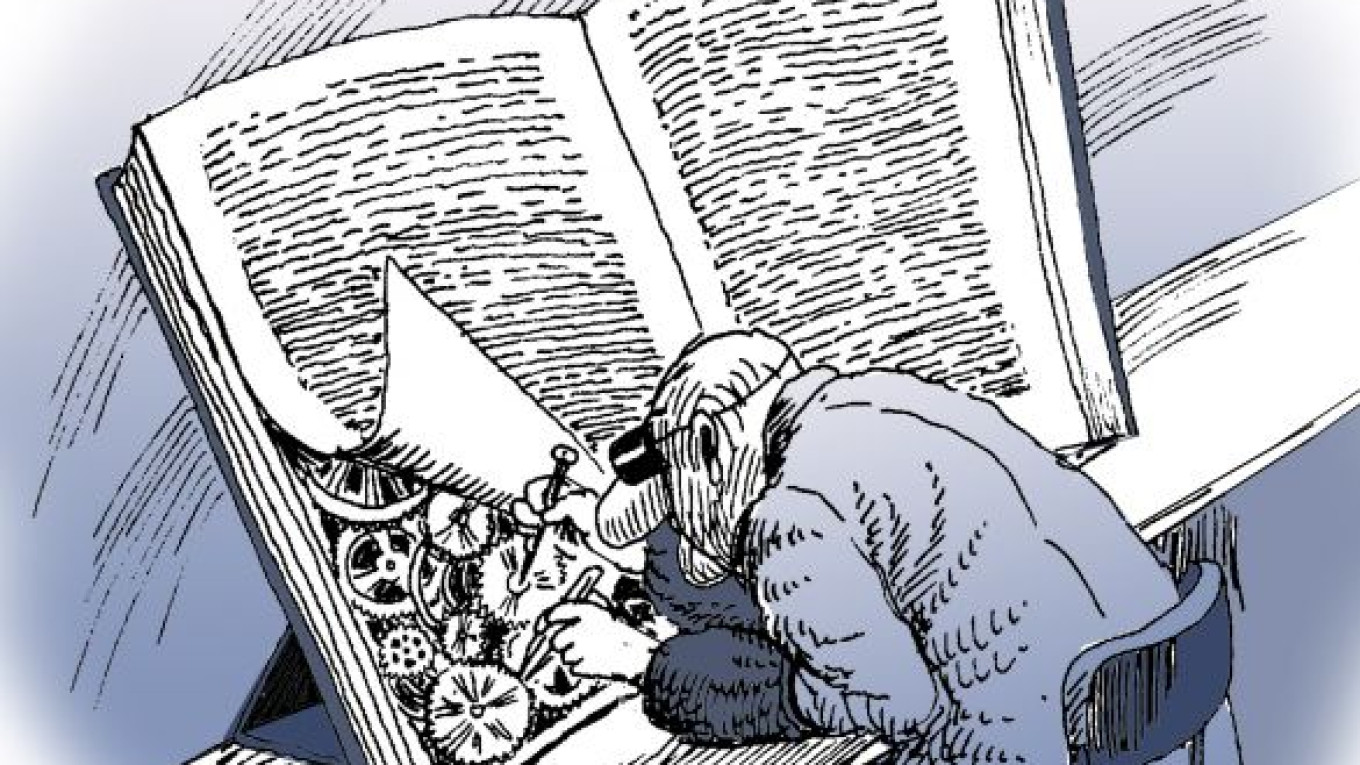The Pussy Riot news story has come to resemble an information riot. The uproar pits two opposing factions: One side maintains the jail sentence handed down to the three members of the punk rock group is fair. The other views it as evidence of Kremlin suppression of free speech. Neither side seems to have put the whole picture together.
The most recent round of sensational stories misquotes my comments about self-exiled tycoon Boris Berezovsky being behind the Pussy Riot incident. Some reports claim I hold absolute proof of that. Those claims are inaccurate.
What I have noted, however, are interesting intersections between the Pussy Riot story and false media accounts claiming that Alexander Litvinenko was murdered in London in 2006 by Russian security agencies. The London coroner has never even concluded that Litvinenko was a victim of homicide, and there is no evidence that points definitively to Russia's role in his death.
The false media stories may have been orchestrated by Berezovsky as a slap at the Russian state and its leaders. It was therefore startling to see in media reports that people and organizations that played key roles in the fallacious Litvinenko allegations are also connected to Pussy Riot.
I first saw news reports that Alexander Goldfarb, who was born in Moscow and emigrated from the Soviet Union in 1975, was supposedly involved in raising funds for Pussy Riot's defense. I recognized his name from the Litvinenko case. Author of the 2007 book "Death of a Dissident: The Poisoning of Alexander Litvinenko and the Return of the KGB" and reportedly on Berezovksy's payroll, Goldfarb was a principal spokesperson in spreading the stories of Litvinenko's supposed murder by Russian authorities.
Goldfarb told Wired magazine recently that Pussy Riot is an inspiration to him. "The grace and courage and intelligence with which they handled themselves is all amazing, of course," he said.
That set off my curiosity. I wondered how many common players are involved in the Pussy Riot and Litvinenko cases. Meanwhile, the London public relations firm Bell Pottinger had reportedly approached a well-known British music agent with the following proposal: If he could convince his pop star clients to make public statements in support of Pussy Riot, they would purportedly receive 100,000 euros ($129,000) in compensation. Notably, Bell Pottinger was instrumental in disseminating Litvinenko stories on behalf of Berezovsky.
Is it just a coincidence that the same two players figure in two seemingly disparate cases? Or are the cases both examples of the same phenomenon: an organized plot to discredit the Kremlin?
I don't know the answer to those questions, but it seems to me that the public champions of Pussy Riot and the journalists covering the story should earnestly be looking into that.
Pussy Riot supporters portray the punk group as legitimate dissidents who stood up for free speech and opposed Putin's oppression. Wesleyan University professor Peter Rutland likened the Pussy Riot group to 19th-century writer Fyodor Dostoevsky on these opinion pages. He said the members represent "a long-standing tradition of dissent by the Russian intelligentsia."
The gushing stories of support for Pussy Riot neglect to consider that the right to free speech is not a license to infringe on the legitimate rights of others. The U.S. Embassy in Cairo recently issued a statement regarding a Muslim-related issue: "Respect for religious beliefs is a cornerstone of American democracy. We firmly reject the actions by those who abuse the universal right of free speech to hurt the religious beliefs of others." Shouldn't that same concept apply to Pussy Riot?
But was Pussy Riot's stunt sufficient to warrant a two-year sentence? One analyst told me that Pussy Riot "got two years for interrupting vacuum cleaning at the cathedral." If that's the case, it might have been more productive to sentence them to community service, perhaps vacuuming churches themselves. That would have given them an opportunity to learn some respect for others.
Yet there is still one remaining common theme between the Pussy Riot and Litvinenko cases that is troubling. Berezovsky has not hidden his intent to foment a revolution in Russia. I've always suspected that the fabricated Litvinenko story fits into that scheme somehow.
At the same time, Nadezhda Tolokonnikova, who is considered the leader of Pussy Riot, and her husband, Pyotr Verzilov, have also told the media that revolution is their main goal. That takes their seemingly juvenile stunts out of the realm of wanton exhibitionism.
If this revolution talk is for real, then both sides have got the Pussy Riot story wrong. The issue is far more serious.
William Dunkerley, a media business analyst and consultant specializing in Russia and the former Soviet Union, is author of "The Phony Litvinenko Murder."
Related articles:
A Message from The Moscow Times:
Dear readers,
We are facing unprecedented challenges. Russia's Prosecutor General's Office has designated The Moscow Times as an "undesirable" organization, criminalizing our work and putting our staff at risk of prosecution. This follows our earlier unjust labeling as a "foreign agent."
These actions are direct attempts to silence independent journalism in Russia. The authorities claim our work "discredits the decisions of the Russian leadership." We see things differently: we strive to provide accurate, unbiased reporting on Russia.
We, the journalists of The Moscow Times, refuse to be silenced. But to continue our work, we need your help.
Your support, no matter how small, makes a world of difference. If you can, please support us monthly starting from just $2. It's quick to set up, and every contribution makes a significant impact.
By supporting The Moscow Times, you're defending open, independent journalism in the face of repression. Thank you for standing with us.
Remind me later.


